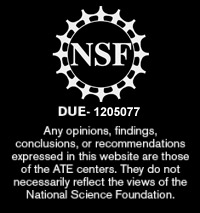RECORDED WEBINARS 2016
Thursday, November 17, 2016
Effective Strategies for Job Placement
This session will share effective practices for identifying new business partners and job openings. The emphasis will center on techniques for building relationships with employers.
Presenters:
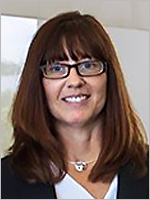
Susie Davisson
Job Developer/Career Coach
Collin College
Biography
Susie Davisson worked as a Job Developer/Career Coach with the DOL TAACCT Round 1 Grant at Collin College. Susie worked with grant participants in job preparation and job placement and became the grants lead job developer.
In her less than three years working on the grant, Susie made contact with more than 250 employers. The relationships she developed led to employers participating in grant events such as employer panels, mock interviews and job fairs.
Prior to her role with Collin College, Susie spent over four years working as an Employment Specialist and Economic Empowerment Specialists with The International Rescue Committee. Davisson is a native of Illinois and spent 16 years as an educator there. She earned a BA from Eureka College and a MS from Western Illinois University.
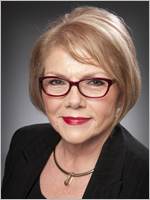
Ann Beheler
Principal Investigator (PI)
National Convergence Technology Center (CTC)
Biography
Ann Beheler has been in the Information Technology industry for over 30 years, and she is now responsible for Emerging Technology grants at Collin College. In that capacity she leads the National Convergence Technology Center, a $4.4 million National Science Foundation Center of Excellence. She has also recently completed an almost $20 million DOL TAACCCT grant. A major focus of these grants is sharing resources including initiatives, curriculum, equipment, and general best practices among 46+ colleges to improve programs nationally. Beheler has experience in industry, leading her own consulting firm, teaching the first vendor-specific networking degree program in Texas, and managing IT-related corporate divisions. She has prior experience as a Vice President of Academic Affairs and as a Dean.
VIEW SLIDES VIEW RECORDINGVIEW TRANSCRIPT
Thursday, October 13, 2016
Strategies for Business Engagement (Includes Credential/ Curriculum Alignment)
The Business Industry Leadership Team (BILT) was developed by the National Convergence Technology center in 2004 created a lock-step cooperation with regional and national business to ensure employment for graduates. This BILT process has been recognized as a best practice by many entities, and has been shared with colleges nationwide. This session will discuss adaptations of the BILT concept from the National CTC.
Presenters:
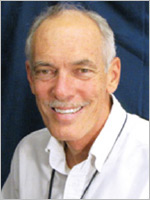
Michael Lesiecki
Director
MATEC
Biography
Mike Lesiecki, PhD, is the director of the Maricopa Advanced Technology Education Center (MATEC) at the Maricopa Community Colleges. He is the Principal Investigator for a grant from the National Science Foundation’s Advanced Technological Education program. Mike has been the host and facilitator of over 200 professional development webinars, working with a diverse group of clients to provide materials, and training that enables students, faculty, and technicians to continuously master the evolving competencies in science, mathematics, technology, and communications required by the workforce of the semiconductor, electronics, and advanced manufacturing industries. Mike received his PhD in Physical Chemistry from Oregon State University and has 27 peer-reviewed journal publications and one patent. He has taught in university, community college, and high school settings and worked in high tech industries as well.
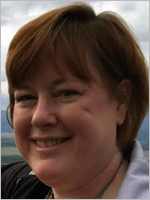
Meri Winchester
Instructor of Computers and Digital Media
McHenry County College
Biography Meri has been with McHenry County College since the fall of 2000. She began in the computer science department teaching programming. In 2005 she was the lead PI on a Mentor Links grant that was used to help create a new Digital Media Degree. Meri spends a lot of time on curriculum development and has helped to create 3 new degrees, and nine new certificates plus the courses for that curriculum. Meri now teaches Web Programming and Development courses. Meri was the lead PI on a Mentor Connect grant, which enabled McHenry County College to receive its first National Science Foundation grant for the creation of a new degree in Mobile Design and Development. Meri has a B.S. in Computer Science from Rockford University, a M.S. in Information Technology from Capella University, and is currently pursuing a PhD in Instructional Design from Capella University.

Ann Beheler
Principal Investigator (PI)
National Convergence Technology Center (CTC)
Biography
Ann Beheler has been in the Information Technology industry for over 30 years, and she is now responsible for Emerging Technology grants at Collin College. In that capacity she leads the National Convergence Technology Center, a $4.4 million National Science Foundation Center of Excellence. She has also recently completed an almost $20 million DOL TAACCCT grant. A major focus of these grants is sharing resources including initiatives, curriculum, equipment, and general best practices among 46+ colleges to improve programs nationally. Beheler has experience in industry, leading her own consulting firm, teaching the first vendor-specific networking degree program in Texas, and managing IT-related corporate divisions. She has prior experience as a Vice President of Academic Affairs and as a Dean.
VIEW SLIDES VIEW RECORDINGVIEW TRANSCRIPT
Thursday September 15, 2016
Using Social Media to Promote and Achieve Grant Outcomes
Social media is used for informal communication by most and is used by companies for a host of activities including marketing. The session will cover the top tools used for social media and the broad usage by people of all ages. How people’s willingness to share openly about themselves through social media, turns social media into a tool for reaching a greater audience to promote a college program and to gather evidence to meet grant outcomes.
Presenters:
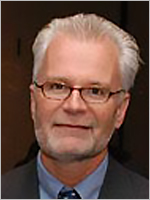
Gordon Snyder
Associate Director
OP-TEC
Biography
Gordon Synder is currently the Associate Director of National Center for Optics and Photonics Education (OP-TEC) funded via University of Central Florida and located in Waco, Texas. The OP-TEC Center is a National Science Foundation Advanced Technological Education Center of Excellence.
He is the past Director of the sun-set National Center for Information and Communications Technologies (ICT Center, formerly the National Center for Telecommunications Technologies or NCTT) at Springfield Technical Community College in Massachusetts.
In addition to his work with the NSF funded Centers, he has served as the Verizon Next Step New England telecommunications curriculum leader serving on several technology boards around the United States including the Microsoft Community College Advisory Council, the Massachusetts Networking and Communications Council, and the National Skill Standards Board.
Snyder is the author of four engineering and engineering technology textbooks and has over 25 years of consulting experience in the field of communications and information technology. In 2001 he was selected as one of the top 15 technology faculty in the United States by Microsoft and the American Association of Community Colleges and in 2004 was selected as the Massachusetts Network and Communications Council Workforce Leader of the year.

Ann Beheler
Principal Investigator (PI)
National Convergence Technology Center (CTC)
Biography
Ann Beheler has been in the Information Technology industry for over 30 years, and she is now responsible for Emerging Technology grants at Collin College. In that capacity she leads the National Convergence Technology Center, a $4.4 million National Science Foundation Center of Excellence. She has also recently completed an almost $20 million DOL TAACCCT grant. A major focus of these grants is sharing resources including initiatives, curriculum, equipment, and general best practices among 46+ colleges to improve programs nationally. Beheler has experience in industry, leading her own consulting firm, teaching the first vendor-specific networking degree program in Texas, and managing IT-related corporate divisions. She has prior experience as a Vice President of Academic Affairs and as a Dean.
VIEW SLIDES VIEW RECORDINGVIEW TRANSCRIPT
Thursday, August 18, 2016
Internships and Apprenticeships: Successful Strategies for Work-based Learning Experiences
Students who complete internships or apprenticeships while in college have a leg up in the job market, find more relevance in their coursework, and tend to be more successful academically and in the workplace. Providing these work-based learning experiences, however, can be challenging. This webinar will focus on models that work and tips for successfully implementing and sustaining apprenticeships and internships.
Presenters:
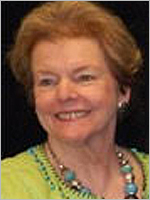
Elaine Craft
Director
SC ATE Center of Excellence
Biography
Elaine Craft has served as Director of the National Science Foundation-funded South Carolina Advanced Technological (SC ATE) Center of Excellence since 1994. Currently, she is also PI for the NSF ATE Mentor-Connect: Leadership Development and Outreach project and a Co-PI for the SC ATE National Resource Center for Expanding Excellence in Technician Education. Craft is also founder and President/CEO of SCATE Inc., a 501(c)(3), not-for-profit corporation created to promote systemic change in Advanced Technological Education and help sustain the SC ATE Center of Excellence. Elaine received her B.S. in Chemical Engineering from the University of Mississippi and a MBA from the University of South Carolina.
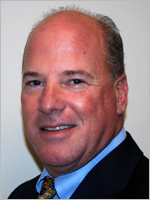
Rick Roberts
Assistant Director
SC ATE Center Apprenticeships
Biography
Rick Roberts has extensive experience in all sectors of industry and education. He currently is the Assistant Director for the South Carolina Advanced Technological Education Center at Florence Darlington Technical College, Florence S.C. As Assistant Director, he manages a large industry consortium and an internship program for students in advanced technology programs that is a driver of economic development in the region. Previously, he was the Director of Career Services at the Community College of Allegheny County, Pittsburgh, Pa where he worked with industry and across a multi-campus system serving more than 28,000 credit and 18,000 non-credit students to help place students in internships, apprenticeships, and jobs. He has also served in various management/supervisory positions within non-profit organizations and private industry where he served as a User Analyst/Subject Matter Expert for Lockheed Martin IMS. Mr. Roberts holds a Bachelor’s degree in Police Administration from Eastern Kentucky University, and a Master’s degree in the Administration of Justice from Shippensburg University.

Barbara Murray
Executive Director and PI
SMART
Biography
Barbara R. Murray is the Executive Director and Principal Investigator for the National Science Foundation SMART (Southeast Maritime and Transportation) Center. Launched in 2010, the SMART Center is one of 40 National Science Foundation Advanced Technological Education (NSF ATE) centers with a focus on developing strong industry and education partnerships to increase middle skill technician professions in the U.S. It is the only NSF ATE center solely focused on the maritime and transportation industry and it serves secondary school systems, two- and four-year colleges and global industry-leading employers across the Southeast region of the U.S. including Maryland, Virginia, North and South Carolina, Georgia, Florida, Alabama, Mississippi, and Texas. With renewal funding awarded in 2015, the SMART Center is scaling its success to educational institutions nationwide.
Developing an effective, replicable Maritime Technologies Career Pathway program and career outreach tools has been a primary focus of the Center’s work. The SMART Maritime Technologies pathway has proven to successfully educate and credential dual enrollment high school students, community college students, military members, re-careering adults, and women, enabling them to successfully pursue careers as middle-skill technicians in the maritime and transportation industry. Murray has served with U.S. DOL and DOT leadership to modify the DOL Transportation, Distribution, and Logistics (TDL) competency model and serve as a catalyst for industry collaborations to create national standards for industry-valued maritime education and credentialing.
Previously Murray serves as Director in Workforce Development for Tidewater Community College (TCC) in Virginia Beach, Virginia, a position she held for 12 years. She has more than 15 years of experience bringing together industry partners and developing programs to met current and projected workforce training needs in both credit and non-credit formats. Murray developed and led the Registered Apprenticeship programs at TCC where she oversaw apprentice-related courses and curriculum development for more than 1,200 registered apprentices. Recognizing the success of the registered apprenticeship programs in the state, the Commonwealth of Virginia passed legislation that provides annual maritime apprentice scholarship funding for students to take specific, required industry coursework; the Commonwealth provided over $700,000 for those scholarships.
Murray has been awarded and managed federal education grants from the U.S. Department of Labor and Industry (DOLI), the Commonwealth of Virginia, NASA, and most recently the National Science Foundation ATE program grant that funded the creation and renewal of the SMART Center.
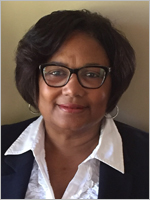
Lois McIntosh
LMcIntosh Career Workforce Consulting
Biography
Lois McIntosh spearheaded the IT Apprenticeship NSF grants at Lansing Community College in Lansing, Michigan. She was instrumental in helping over 156 students obtain jobs during one of the largest economic recessions, which resulted in successfully placing students in various employment such as manufacturing and automotive. Rethinking this initiative brought business and industry and students together in tough times. While many college students around the state were unable to find jobs without the support of a structured program such as this NSF program, LCC students, with the assistance of these components prevailed. Students developed online readiness skills through online course and career employment services.
Prior to making the transition to Lansing Community College, Lois worked in the Lansing community as a Treasury Management Officer for a nationally renowned bank, where she established a list of networking partners who supported her grant activities. Her banking experience was a plus as she had access to industry connections that were viable to a new NSF approach for connecting students and industry partners together; thus, the ProDev IT Apprenticeship Program was born and eventually scaled up for use by other community colleges around the nation.
Lois has received the Best of Michigan, Excellence in Technology Award October 2009 for cross boundary IT internship/Apprenticeship and economic growth partnership with the State of Michigan. Lois has been interviewed by the Lansing State Journal and LCC TV “as the link to helping students find employment.” Lois is the liaison for making the connection for a win/win work experience between the student and employer.
Lois has a true workforce passion for helping students take the leap into the world of work. She now owns her own consulting company LMcIntosh Career Workforce Consulting working with K-12 districts and Community colleges throughout the nation.
VIEW SLIDES VIEW RECORDINGVIEW TRANSCRIPT
Thursday, June 16, 2016
Tips for Managing Large Consortiums
Leading a consortium across one state or across 6 to accomplish goals can be hard. This webinar will provide best practices for helping you successfully lead any consortium to accomplish common goals.
Presenters:

Ann Beheler
Principal Investigator (PI)
National Convergence Technology Center (CTC)
Biography
Ann Beheler has been in the Information Technology industry for over 30 years, and she is now responsible for Emerging Technology grants at Collin College. In that capacity she leads the National Convergence Technology Center, a $4.4 million National Science Foundation Center of Excellence. She has also recently completed an almost $20 million DOL TAACCCT grant. A major focus of these grants is sharing resources including initiatives, curriculum, equipment, and general best practices among 46+ colleges to improve programs nationally. Beheler has experience in industry, leading her own consulting firm, teaching the first vendor-specific networking degree program in Texas, and managing IT-related corporate divisions. She has prior experience as a Vice President of Academic Affairs and as a Dean.
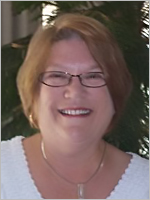
Marianne Krismer
National Director
Health Professions Pathway TAACCCT Consortium
Biography
Dr. Krismer’s career in healthcare education spans over 40 years, as a college professor, administrator, grant director and a community leader. During her 15 years as Dean of Health and Public Safety at Cincinnati State Technical and Community College, Marianne worked with an innovative faculty and staff and the workforce community to develop several degree and certificate programs with a focus on stackable credentials to degree. She is one of the founding members of the Health Careers Collaborative of Greater Cincinnati, a highly regarded organization that works with the workforce, community based organizations and education to assure a well-prepared healthcare workforce.
Dr. Krismer has been awarded over $30 million in federal and foundation grants to support innovation in the health career pathway to employment. These include 3 Johnson and Johnson Foundation for high school to college access and 3 Department of Labor Grants including the most recent Health Professions Pathways Consortium Grant that she led from 2011 to 2015. The H2P Grant, a TAACCCT 1 initiative served over 6,500 students from 9 community colleges in 9 states. The outcomes evaluation demonstrated that the innovative strategies to improve health care education and training worked increasing student completion and employment significantly over retrospective study samples.
Marianne serves on several Boards including NN2, HPN, and as a commissioner for CAAHEP. She now serves as a consultant for Ohio Tech Prep and other health education and employment organizations.
She is the recipient of several leadership awards and a 2009 graduate of Leadership Cincinnati and continues to support initiatives related to providing opportunities for student success and employment in healthcare.
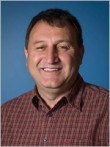
John Sands
Principal Investigator
CSSIA
Biography
John Sands has over 30 years of experience in teaching and developing curriculum in the areas of Data Communications, Information Technology and Information Assurance. He currently serves as the Principal Investigator/Executive Director of the Center for Systems Security and Information Assurance (CSSIA), an NSF/ATE National Support Center. He holds several industry certifications and also runs a consulting firm in the area of Information Security and Wireless Communications. As a department chair, full time faculty member, and academic researcher, he has developed and taught numerous online technology courses using an integrated virtual teaching and learning environment. Dr. Sands has served as the executive director of one of the most successful Cisco System – Network Academy Training Centers in the country. He also possesses a very strong background in developing and implementing online curriculum for both students and faculty and has been the recipient of several awards in the area of innovation and teaching.
VIEW SLIDES VIEW RECORDINGVIEW TRANSCRIPT
Wednesday, May 25, 2016
Meeting Requirements, Exceeding Expectations: Understanding the Role of
Evaluation in Federal Grants
External evaluation is a requirement of many federal grant programs. Understanding and addressing these requirements is essential for both successfully seeking grants and achieving the objectives of funded projects. In this webinar, we will review the evaluation language from a variety federal grant programs and translate the specifications into practical steps. Topics will include finding a qualified evaluator, budgeting for evaluation, understanding evaluation design basics, reporting and using evaluation results, and integrating past evaluation results into future grant submissions.
Presenters:
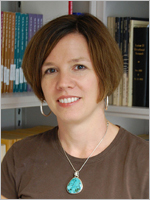
Lori Wingate
Director of Research at The Evaluation Center at Western Michigan University
BiographyLori Wingate is the Director of Research at The Evaluation Center at Western Michigan University (WMU). She has a Ph.D. in evaluation and more than 20 years of experience in the field of program evaluation. She directs EvaluATE, the National Science Foundation-funded Advanced Technological Education Evaluation Resource Center, and has led a variety of evaluation projects at WMU focused on STEM education, health, and higher education initiatives. She is an associate member of the graduate faculty at WMU and has led about 50 webinars and workshops on evaluation in a variety of contexts. Additionally, she provides technical consultation as a subject matter expert in evaluation to the Center for Global Health at the Centers for Disease Control and Prevention.
Discussant:
Leslie Goodyear
Principal Research Scientist at EDC
BiographyLeslie Goodyear M.S., Ph.D., is a Principal Research Scientist at EDC who focuses on evaluating and researching educational programs, most recently focused on STEM education with particular concentration on informal learning, afterschool programs, and programs that leverage technology for learning. From 2009-12, Leslie was on loan from EDC to NSF where she served as a program officer in the Division of Research on Learning.
VIEW SLIDES VIEW RECORDINGVIEW TRANSCRIPT
Thursday, April 28, 2016
Highlights of Advanced Manufacturing and Engineering Technology Resources from ATE Centers
Looking for manufacturing education resources? All NSF ATE Centers develop a wealth of best and promising practices, skills alignments, curriculum, and other resources that support 2-year academic technical programs. Learn more about 6 Manufacturing focused centers, their resources and how best to access them in this fast paced lighting round type webinar.
Presenters:
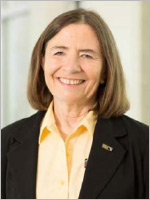
Marilyn Barger
Principal Investigator (PI)
FLATE
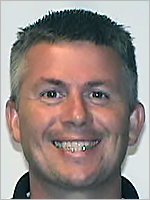
Jeremy Leffelman
Principal Investigator (PI)
360
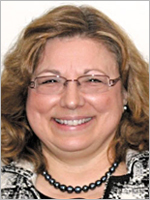
Karen Wosczyna-Birch
Principal Investigator (PI)
RCNGM

Beverly Hilderbrand
Principal Investigator (PI)
CARCAM
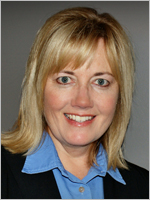
Monica Pfarr
Principal Investigator (PI)
WELD-ED
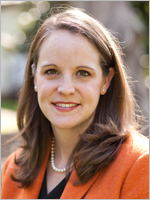
Kris Frady
Director of Operations
CA2VES
VIEW SLIDES VIEW RECORDINGVIEW TRANSCRIPT
Thursday, March 24, 2016
Communities of Practice: Secrets of Successful Implementation (Part II)
The Convergence Technology Network started 11 years ago and has grown to have 46 member colleges from 16 states. This session will present best practices for creating, maintaining and growing a community of practice similar to the Convergence Technology Network. Member colleges will share the benefits they have received from being a part of a community of practice.
Presenters:

Ann Beheler
Principal Investigator (PI)
National Convergence Technology Center (CTC)
Biography
Ann Beheler has been in the Information Technology industry for over 30 years, and she is now responsible for Emerging Technology grants at Collin College. In that capacity she leads the National Convergence Technology Center, a $4.4 million National Science Foundation Center of Excellence. She has also recently completed an almost $20 million DOL TAACCCT grant. A major focus of these grants is sharing resources including initiatives, curriculum, equipment, and general best practices among 46+ colleges to improve programs nationally. Beheler has experience in industry, leading her own consulting firm, teaching the first vendor-specific networking degree program in Texas, and managing IT-related corporate divisions. She has prior experience as a Vice President of Academic Affairs and as a Dean.

Helen Sullivan
Director
National Convergence Technology Center
Biography
Helen Sullivan is Director of the National Convergence Technology Center at Collin College, and was director of the prior NSF ATE Regional Convergence Technology Center and two prior project grants: The North Texas Regional Technology Consortium and Advancing Careers in Technology and Science.
She holds a BA degree in mathematics from the University of Texas at Austin and an MLS degree in communications, media and technology from Southern Methodist University. She has over 25 years project and program management experience at large technology companies and is a conference speaker and facilitator.
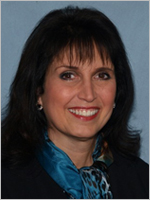
Elizabeth Halweg
Instructor
Fox Valley Technical College
BiographyElizabeth Halweg is an instructor at Fox Valley Technical College in Appleton Wisconsin. The college provides high quality learning experiences to enhance the lives of the students and the economic development of Northeast Wisconsin. Elizabeth holds a MS degree from the University of Wisconsin-Stout in Vocational and Technical Education and a BS degree from the University of Wisconsin-Eau Claire in Management Information Systems. After 20 years of work experience in the Telecommunications field, she is now an instructor of Information Technology at Fox Valley Technical College and has been there since August of 2000. As a strong proponent of STEM education, Elizabeth started the GirlTech summer camp at Fox Valley Technical College to expose young girls to STEM technologies. In 2008, Elizabeth became involved with the Convergence Technology Center as a Mentored College and now supports the National CTC as a Converged College Network (CCN) board member and Co-PI on the grant. Elizabeth is committed to meeting established targeted goals in expansion of the CCN to 60 members and the virtual delivery of high-demand converged technology courses.
VIEW SLIDES VIEW RECORDINGVIEW TRANSCRIPT
February 25, 2016 — Communities of Practice: Secrets of Successful Implementation (Part I)
This webinar will provide an overview and characteristics of a strong, working community of practice and how to get started, and how to keep it going and growing. Several examples from the ATE community will be highlighted.

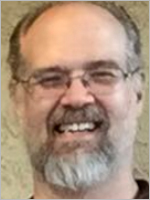
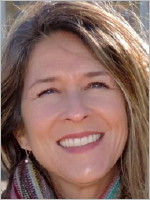
Presenters:
Marilyn Barger, PI & Executive Director
Florida Advanced Technological Education Center (FLATE)
BiographyMarilyn Barger is the Principal Investigator and Executive Director of FLATE, the Florida Regional Center of Excellence for Advanced Technological Education, funded by the National Science Foundation and housed at Hillsborough Community College in Tampa, Florida since 2004. She earned a B.A. in Chemistry at Agnes Scott College and both a B.S. in Engineering Science and a Ph.D. in Civil Engineering (Environmental) from the University of South Florida, where her research focused on membrane separation science and technologies for water purification. She has over 20 years of experience in developing curricula for engineering and engineering technology for elementary, middle, high school, and post-secondary institutions, including colleges of engineering. Dr. Barger serves on several national panels and advisory boards for technical programs, curriculum and workforce initiatives, including the National Association of Manufacturers Educators’ Council. She is a Fellow of the American Society of Engineering Education, a member of Tau Beta Pi and Epsilon Pi Tau honor societies. She is a charter member of both the National Academy and the University of South Florida‘s Academy of Inventors. Dr. Barger holds a licensed patent and is a licensed Professional Engineer in Florida.
Jim Hyder, Consultant
BiographyJames Hyder is currently a Professional Consultant working on several evaluation and instructional design contracts for projects, Centers, and programs focusing on nanotechnology and Communities of Practice. He received his M.S. in Management in Science and Technology from the Oregon Health and Sciences University and his B.S. in Workforce Education and Development from Southern Illinois University. Recently, Jim served as a Professional Consultant (Innovation Coach, Internal Evaluator and Industry Liaison) on the NSF funded Southwest Center for Microsystems Education Regional Center of Excellence and as an Internal Evaluator for the Digital Fab Learning Community (DFLC). Prior to his work in education, Jim worked with industry creating Human Performance Improvement applications. He specialized in analysis, intervention, and evaluation (ROI) within the semiconductor, lean manufacturing/enterprise, and solar environments.
Barbara Lopez, Research Engineer
University of New Mexico
BiographyBarbara Lopezis a research engineer with the University of New Mexico and has been working for the Southwest Center for Microsystems Education since its inception in 2004. Ms. Lopez is a curriculum developer, instructor, and internal evaluator for SCME. Before working with SCME she was a capacity engineer for Intel Corporation, and worked in acoustic and vibration testing for NASA Johnson Space Center. Barb has also spent the past 17 years schooling her children at home, a job she surely misses!
VIEW SLIDES VIEW RECORDINGVIEW TRANSCRIPT
February 10, 2016 — NSF Guidance on Financial Management of ATE Grants: What You Don’t Know Can Hurt You!
Co-sponsored by Mentor-Connect: Leadership Development and Outreach for ATE (SC ATE Center, Florence-Darlington Technical College, Florence, SC)
Experts from the National Science Foundation will address important information concerning financial management and grant management for ATE grant recipients and who to contact about what. The focus will be on financial accounting issues and problems often seen in monitoring visits such as participant support, time and effort accounting, sub-awardees, record keeping, changes in scope, overload, and use of consultants. Participants will have an opportunity to pose questions and get answers directly from NSF personnel.
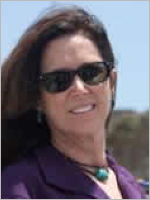
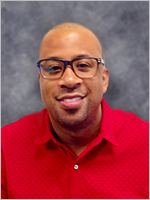
Presenters:
Mr. L. Rashawn Farrior, NSF Grants & Agreements Specialist
National Science Foundation
BiographyRashawn Farrior has been part of the National Science Foundation since 2007, he has been responsible for numerous portfolios across the NSF numerous Directorates. Rashawn has over 14 years of federal experience in Grant Administration, including 5 years with National Institutes of Health at the Eunice Kennedy National Institute of Child Health & Human Development. Rashawn received his B.A. degree in Political Science from North Carolina Agricultural & Technical State University and his Master’s Degree in International Affairs and Development from Clark Atlanta University. Rashawn has a vast wealth of knowledge in the realm of grants administration and takes great pride speaking to the grantee community on a host of topics relevant in the grant community.
Dr. V. Celeste Carter, Lead Program Officer, ATE Program
National Science Foundation
BiographyV. Celeste Carter is the Program Director for the Division of Undergraduate Education (DUE) at the National Science Foundation (NSF). She received her Ph.D. in Microbiology from the Pennsylvania State University School of Medicine in 1982 under the direction of Dr. Satvir S. Tevethia. She completed her postdoctoral studies in the laboratory of Dr. G. Steven Martin at the University of California at Berkeley. Carter joined the Division of Biological and Health Sciences at Foothill College in 1994 to develop and head a Biotechnology Program. She served as a Program Director twice in DUE as a rotator. Carter accepted a permanent Program Director position in DUE in 2009; she is the Lead Program Director for the Advanced Technological Education (ATE) Program, and works on other programs in the Division and across the Foundation. She served as the Education and Human Resources Liaison to the Division of Polar Programs from 2012 to 2014.
VIEW SLIDES VIEW RECORDINGVIEW TRANSCRIPT
January 21, 2016 — Leveraging Grants to Achieve Mutual Goals
This session will present Funding Opportunities at the NSF that are of particular interest to 2‐year institutions. These will include programs within the Division of Undergraduate Education and some of the cross‐cutting NSF programs (e.g. Research Experiences for Undergraduates). Tips on preparing a competitive proposal as well as an overview of the NSF merit review process will be presented.

V. Celeste Carter | Biography V. Celeste Carter is the Program Director for the Division of Undergraduate Education (DUE) at the National Science Foundation (NSF). She received her Ph.D. in Microbiology from the Pennsylvania State University School of Medicine in 1982 under the direction of Dr. Satvir S. Tevethia. She completed her postdoctoral studies in the laboratory of Dr. G. Steven Martin at the University of California at Berkeley. Carter joined the Division of Biological and Health Sciences at Foothill College in 1994 to develop and head a Biotechnology Program. She served as a Program Director twice in DUE as a rotator. Carter accepted a permanent Program Director position in DUE in 2009; she is the Lead Program Director for the Advanced Technological Education (ATE) Program, and works on other programs in the Division and across the Foundation. She served as the Education and Human Resources Liaison to the Division of Polar Programs from 2012 to 2014.
VIEW SLIDES VIEW RECORDINGVIEW TRANSCRIPT



























